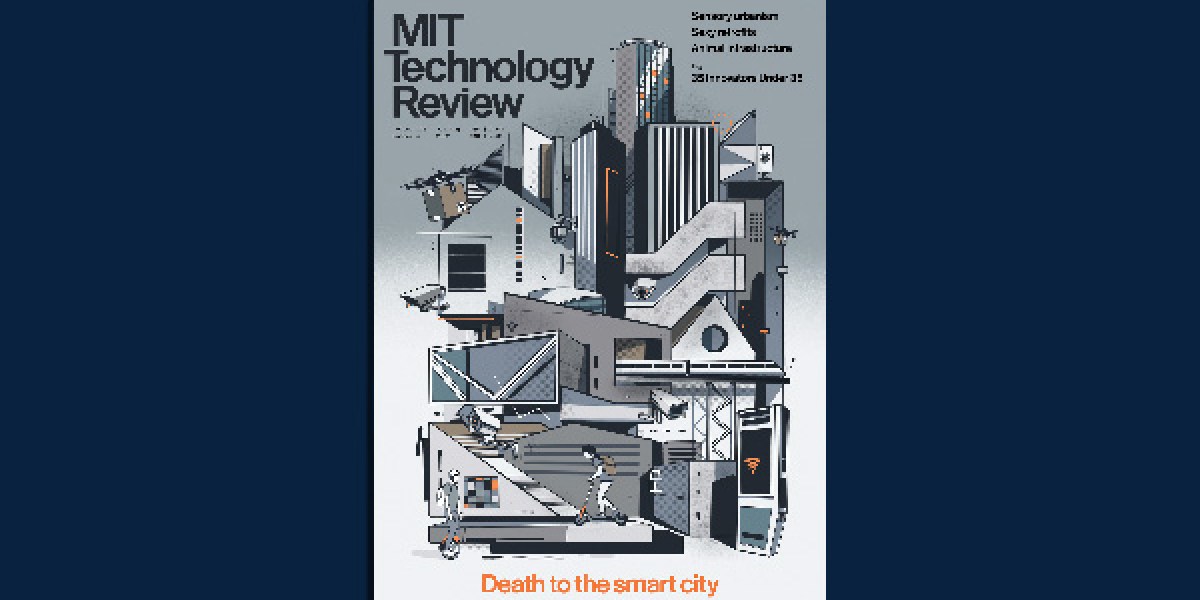The Download: Introducing our TR35 list, and the death of the smart city
This is today’s edition of The Download, our weekday newsletter that provides a daily dose of what’s going on in the world of technology.
Introducing: Our TR35 list of innovators for 2022
Spoiler alert: our annual Innovators Under 35 list isn’t actually about what a small group of smart young people have been up to (although that’s certainly part of it.) It’s really about where the world of technology is headed next.
As you read about the problems this year’s winners have set out to solve, you’ll also glimpse the near future of AI, biotech, materials, computing, and the fight against climate change.
To connect the dots, we asked five experts—all judges or former winners—to write short essays about where they see the most promise, and the biggest potential roadblocks, in their respective fields. We hope the list inspires you and gives you a sense of what to expect in the years ahead.
Read the full list here.
The Urbanism issue
The modern city is a surveillance device. It can track your movements via your license plate, your cell phone, and your face. But go to any city or suburb in the United States and there’s a different type of monitoring happening, one powered by networks of privately owned doorbell cameras, wildlife cameras, and even garden-variety security cameras.
The latest print issue of MIT Technology Review examines why, independently of local governments, we have built our neighborhoods into panopticons: everyone watching everything, all the time. Here is a selection of some of the new stories in the edition, guaranteed to make you wonder whether smart cities really are so smart after all:
– How groups of online neighborhood watchmen are taking the law into their own hands.
– Why Toronto wants you to forget everything you know about smart cities.
– Bike theft is a huge problem. Specialized parking pods could be the answer.
– Public transport wants to kill off cash—but it won’t be as disruptive as you think.
– How a rebellious French city is fighting back against its growing network of police surveillance cameras.
Correction: A story in yesterday’s newsletter stated that the US had 60,000 charging stations for electric vehicles. There are in fact 6,000. We apologize for the error.
The must-reads
I’ve combed the internet to find you today’s most fun/important/scary/fascinating stories about technology.
1 Donald Trump’s online supporters are confusing themselves
They’re tying themselves in knots trying to debunk former aide Cassidy Hutchinson’s testimony—despite what the evidence says. (WP $)
+ Hutchinson’s January 6 testimony is the most damning yet. (The Atlantic $)
+ A summary of the most shocking revelations she made. (Vox)
2 A pro-China influence campaign is targeting the rare earths industry
The group wants to undermine trust in Western companies to further China’s dominance of the sector. (MIT Technology Review)
3 Instagram is hiding posts that mention abortion
Posts offering to sell and mail guns are fine though, apparently. (AP)
+ Facebook was quick to label an abortion rights vandalism group ‘terrorists.’ (The Intercept)
+ Big Tech remains silent on questions about data privacy in a post-Roe US. (MIT Technology Review)
4 Bitcoin is poised to drop even further
Just as investors were starting to feel optimistic again. (Bloomberg $)
+ A guy nicknamed ‘Crypto Jesus’ has allegedly racked up a $47 million crypto debt. (Motherboard)
+ We’re still waiting for regulators to get their heads around crypto. (Slate $)
+ Life, death, taxes, bitcoin volatility? (FT $)
5 Solar panels that shield crops from extreme heat are showing promise
But if the crops taste bad, it’s all a colossal waste of money. (NYT $)
+ These materials were meant to revolutionize the solar industry. Why hasn’t it happened? (MIT Technology Review)
+ Readying the US for solar power is a thankless task. (Motherboard)
6 Debate streamers are guiding conspiracy theorists back to reality
Thanks to a combination of a light touch, logic and gentle compassion. (CNET)
+ How to talk to conspiracy theorists—and still be kind. (MIT Technology Review)
7 A lot of seals look the same to us 
Facial recognition can help researchers tell them apart. (Hakai Magazine)
+ A UK independent legal review wants to ban facial recognition. (FT $)
8 How a deported hacker’s skills helped him to reenter the US
But also made him a target. (Rest of World)
+ A former Uber security chief has been accused of hacking. (Reuters)
+ The FBI is concerned by the rise of people using deepfakes to apply for jobs. (Insider)
9 YouTube’s babies are growing up 
While their families have vlogged their lives since birth, the now-teenagers are pretty relaxed about it. (Rolling Stone)
10 Happy 10th birthday to one of the internet’s favorite tweets
A decade on, it still rings true. (The Atlantic $)
Quote of the day
“They think they’re onto something visionary, but their product actually fails a basic logical test.”
—Liron Shapira, a tech investor and writer, tells The Atlantic that web3 and crypto founders mostly have not worked out why their products need to be on the blockchain to begin with.
The big story
AI is learning how to create itself
May 2021
A little stick figure with a wedge-shaped head shuffles across the screen. It moves in a half crouch, dragging one knee along the ground. It’s walking! Er, sort of.
Yet Rui Wang is delighted. “Every day I walk into my office and open my computer, and I don’t know what to expect,” he says.
An artificial-intelligence researcher at Uber, Wang likes to leave the Paired Open-Ended Trailblazer, a piece of software he helped develop, running on his laptop overnight. POET is a kind of training dojo for virtual bots. So far, they aren’t learning to do much at all. These AI agents are not playing Go, spotting signs of cancer, or folding proteins—they’re trying to navigate a crude cartoon landscape of fences and ravines without falling over.
But it’s not what the bots are learning that’s exciting—it’s how they’re learning. It may seem basic at the moment, but for Wang and a handful of other researchers, POET hints at a revolutionary new way to create supersmart machines: by getting AI to make itself. Read the full story.
—Will Douglas Heaven
We can still have nice things
A place for comfort, fun and distraction in these weird times. (Got any ideas? Drop me a line or tweet ’em at me.)
+ Here’s why Sonic the Hedgehog is an exhausted millennial icon.
+ A helpful guide explaining how to throw the perfect barbecue this summer.
+ Yikes, who had gigantic pythons slithering around Florida for 2022 bingo?
+ New York’s last public pay phone is now an exhibit in the Museum of the City of NY.
+ These ants aren’t just hard workers—they’re also fossil hunters!




